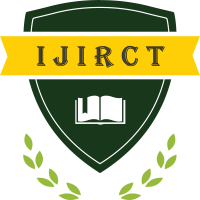Indigenous Autonomy, PESA Act, and Adivasi Self-Governance in Jharkhand
Author(s): Meena Kumari
Publication #: 1601051
Date of Publication: 11.11.2016
Country: India
Pages: 265-273
Published In: Volume 2 Issue 6 November-2016
Abstract
This research paper talks about tribal governance in Jharkhand, India, tracing its historical evolution, contemporary challenges, and future prospects. Drawing upon existing literature, the study examines the complex interplay between traditional systems of self-rule and external administrative interventions, from pre-colonial tribal times to post-independence bureaucratic reforms. It explores how colonial and post-independence administrative changes, including the Bihar Panchayat Raj System, have eroded indigenous autonomy and marginalized traditional governance structures, setting the stage for the contemporary challenges faced by Adivasi communities. The enactment of the Panchayat Extension to Scheduled Areas (PESA) Act in 1996 represents a significant legislative effort to address the historical marginalization of tribal communities and promote self-governance in scheduled areas. However, the partial implementation of PESA in Jharkhand has posed significant challenges to the special rights and autonomy of Scheduled Area Adivasis, exacerbating the challenges faced by indigenous communities in asserting their self-governance rights. Bureaucratic apathy, lack of clarity in legal provisions, and resistance to change have impeded the effective enforcement of PESA, resulting in discrepancies between formal requirements and on-the-ground realities. The current study highlights the importance of strengthening Gram Sabha institutions, promoting transparency and accountability, and fostering civil society engagement to realize the objectives of tribal self-governance. It emphasizes the need for collaboration between government, civil society, and tribal communities to bridge the gap between policy and practice, ensuring that the rights and aspirations of Adivasi populations are respected and upheld. Ultimately, the research underscores the urgent need to revitalize indigenous self-rule in Jharkhand, empowering communities to shape their own development trajectories and preserve their cultural heritage for generations to come. By navigating the complexities of tribal governance with sensitivity and foresight, stakeholders can pave the way for a future where indigenous voices are heard, their rights are respected, and their aspirations are realized.
Keywords: Tribal Governance, Jharkhand, Indigenous Autonomy, Panchayat Extension to Scheduled Areas (PESA) Act, Adivasi Communities, Self-Governance, Community Empowerment, Implementation Gap.
Download/View Count: 1179
Share this Article
